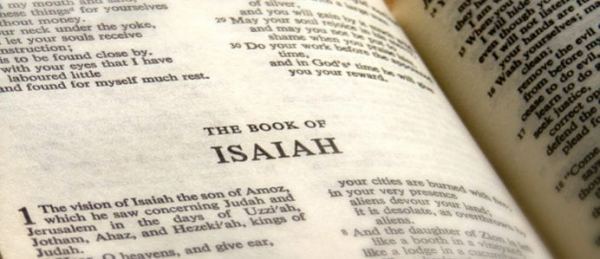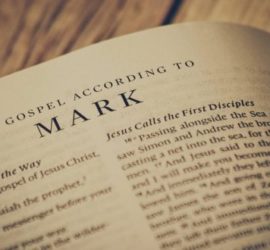Sunday School Outline – December 6th 2020 – January 17th 2021

Unit Theme: Book of Isaiah
INTRODUCTION
Several labels have been attached to the Book of Isaiah. Among them are “a Bible within the Bible,” “a miniature Bible,” “the centerpiece of the story of Israel,” and “the Romans of the Old Testament.” A number of quotations from the Book of Isaiah are found in the New Testament. Jesus himself (the infallible Teacher) quoted from this book, and other parts are recognized as the witness of the Holy Spirit. Where could we find greater authenticity than the endorsement of members of the Godhead?
Little is known of Isaiah except what is recorded in this book. He was a prophet who ministered in Jerusalem from about 750 to 700 BC. He worked under four Judean kings: Uzziah, Jotham, Ahaz, and Hezekiah (1:1). He wrote of hope and disaster. His portrait of the future of Jerusalem is beautiful, and his foretelling of Babylon’s fall is horrific.
Isaiah and his son Shear took the message of the Lord to King Ahaz (see ch. 7). Under divine direction, Isaiah was instructed to walk around Jerusalem naked as a sign of God’s displeasure with Jerusalem’s apostasy (see ch. 20). He foretold Jerusalem’s deliverance from Sennacherib’s siege (see chs. 36-37), and was a witness to Hezekiah’s recovery (see ch. 38). Jewish tradition claims that Isaiah suffered martyrdom by having been sawn asunder. We don’t know if this is true, but there is a reference in the listing of the heroes of faith in Hebrews 11 to some who were “sawed in two” (v. 37 NIV). There is an account in the apocryphal The Ascension of Isaiah that says he suffered martyrdom under Manasseh.
The Book of Isaiah carries the message of a sovereign God who, out of His heart of love, provides redemption for humankind. His sovereignty is on display in His connection with the Jewish people. In their sins, they faced divine judgment; in their return to God, they found salvation. As much as in any other Biblical account, the majesty and holiness of God are on display in this book. Isaiah also shows us what a marvelous future God has in store for those who are His.
December 6, 2020 (Lesson 1)
SIN, JUDGMENT, AND RESTORATION
1. Sins of a Nation (Isaiah 1:1-15, 21-23)
2. Call to Repentance and Cleansing (Isaiah 1:16-20)
3. Judgment and Restoration Promised (Isaiah 1:24—2:5)
Central Truth: God will judge the sinner, but forgive and restore the penitent.
December 13, 2020 (Lesson 2)
EVERLASTING JUDGMENT OR EVERLASTING JOY?
1. God’s Judgment Against the Wicked (Isaiah 34:1-7)
2. Divine Retribution (Isaiah 34:8-17)
3. The Gladness of the Redeemed (Isaiah 35:1-10)
Central Truth: God’s judgment awaits all who rebel, but the redeemed of the Lord will experience everlasting joy.
December 20, 2020 (Lesson 3)
THE BIRTH OF THE KING (Christmas)
1. The King Is Born (Matthew 1:18-25)
2. The King Is Sought (Matthew 2:1-8)
3. The King Is Worshiped (Matthew 2:9-11)
Central Truth: Because He is the King, Jesus is worthy of our adoration and praise.
December 27, 2020 (Lesson 4)
OUR GREAT GOD
1. God’s Comforting and Enduring Word (Isaiah 40:1-8)
2. King, Shepherd, and Omniscient Sage (Isaiah 40:9-17)
3. God’s Supreme Reign (Isaiah 40:18-31)
Central Truth: God’s greatness is manifested, not only through His divine attributes, but also in His personal care for His own.
January 3, 2021 (Lesson 5)
GOD’S SUFFERING SERVANT
1. Despised and Rejected (Isaiah 52:13—53:3)
2. Wounded for Our Transgressions (Isaiah 53:4-9)
3. Bruised and Exalted by God (Isaiah 53:10-12)
Central Truth: God the Father’s exaltation of Jesus showed His approval of Jesus’ substitutionary death.
January 10, 2021 (Lesson 6)
GOD’S COMPASSION FOR ALL PEOPLE
1. God’s Everlasting Mercy and Kindness (Isaiah 54:1-10)
2. God’s Promise to His People (Isaiah 54:11-17)
3. God’s Invitation to the Nations (Isaiah 55:1-13)
Central Truth: God is full of love and compassion for all people.
January 17, 2021 (Lesson 7)
A NEW WORLD PROMISED
1. Coming of the Messiah (Isaiah 61:1-9)
2. Invitation Accepted or Rejected? (Isaiah 62:10-12; 65:1-12)
3. Everlasting Joy for God’s People (Isaiah 65:17-25)
Central Truth: Jesus Christ will return to judge the nations and welcome the redeemed.
Sunday School Outline – January 24th 2020 – February 28th 2021

UNIT THEME: GOSPEL OF MARK
INTRODUCTION
This unit highlights the beginning of Jesus’ ministry, His confronting of religious leaders, the revelations of Jesus’ divinity, His teachings about the End Time and His death and resurrection.
January 24, 2021 (Lesson 8)
JESUS’ MINISTRY BEGINS
1. John Prepares the Way (Mark 1:1-8)
2. Ministry Beginnings (Mark 1:9-20)
3. Manifesting Unequaled Authority (Mark 1:21-39)
January 31, 2021 (Lesson 9)
JESUS CONFRONTS RELIGIOUS LEADERS
1. About Healing and Forgiveness (Mark 2:1-12)
2. About Eating and Fasting (Mark 2:15-22)
3. About the Sabbath (Mark 2:23—3:6)
February 7, 2021 (Lesson 10)
JESUS REVEALS HIS DIVINITY
1. Peter’s Confession (Mark 8:27-30)
2. Jesus Predicts His Death (Mark 8:31—9:1)
3. The Transfiguration (Mark 9:2-13)
February 14, 2021 (Lesson 11)
JESUS TEACHES ABOUT THE END-TIME
1. Do Not Be Deceived (Mark 13:1-11)
2. Recognize Signs of Christ’s Return (Mark 13:12-31)
3. Always Be Ready (Mark 13:32-37)
February 21, 2021 (Lesson 12)
JESUS STANDS TRIAL
1. Betrayed and Arrested (Mark 14:43-52)
2. Before the High Priest (Mark 14:53-72)
3. Before Pilate (Mark 15:1-15)
February 28, 2021 (Lesson 13)
JESUS’ DEATH AND RESURRECTION
1. Jesus Crucified (Mark 15:16-32)
2. Jesus Dead and Buried (Mark 15:33-47)
3. Jesus Resurrected and Ascended (Mark 16:1-20)
Next Unit Theme: Scriptures Difficult to Understand
Sunday School Outline – March 7th 2021 – April 18th 2021

Unit Theme:
Scriptures Difficult to Understand
The Bible is God’s Word to us, but in order for the Bible to fulfil its purposes in our lives, we must understand it. Therefore, we believe God gave us His Word in an understandable and clear form. Scholars call this concept the “clarity of Scripture.” This means the message of the Bible is not a puzzle we must piece together or a secret mystery we must solve. It is written in normal human language, using words, grammar, and literary standards with their straightforward meanings.
We should read the Bible naturally, and we should interpret its words as we would in ordinary daily use. That is, we should not seek out some new mystical, hidden, or secret interpretation. The message of the Bible is not hidden; it is available to ordinary people (Deut. 30:11-14). False teachers often claim to have secret knowledge, and they deceive their followers and create a false religion. The apostle Paul warns us against these false teachers who disseminate the “doctrines of demons” (1 Tim. 4:1 NKJV).
Although we affirm the clarity of Scripture, we also admit that many passages of Scripture are difficult to understand. However, our difficulty in understanding those passages is not due to any fault of the Bible itself. Instead, our struggles to understand are caused by the great distance that exists between us and the Biblical world. We live in modern times, but the Bible was written in ancient times. This distance between the ancient world and the modern world creates several barriers that hinder our understanding of the Bible. The barriers include language, worldview, culture, geography, and tradition.
The Bible was written in the Hebrew, Aramaic, and Greek languages, which have unique words and terms that do not translate well into English. Also, the ancient worldview was very different from the modern worldview. For example, ancient people did not separate the physical dimension from the spiritual dimension. Differences in culture relate to almost every part of life. Over the centuries, almost every category of culture has seen radical changes, including daily habits, political structures, religious customs, family relationships, educational patterns, work environments, and social traditions.
The geography of the Middle East is unfamiliar to most of us, but it plays an essential role in many Biblical events. Finally, in regard to tradition, Jesus declared that the Pharisees and scribes made the “word of God of none effect through [their] tradition” (Mark 7:13). Therefore, we sometimes misunderstand Scripture because of incorrect teaching in the past.
Over the next few weeks, we will see how these barriers to communication can be overcome or at least minimized. This week, in our attempt to understand three separate Biblical passages, we will learn about two unfamiliar ancient rituals; and we will reflect on our traditional view of God.
March 7, 2021 (Lesson 1)
DIFFICULT PASSAGES IN GENESIS AND EXODUS
1. Supernatural Experience (Genesis 15:7-18)
2. Dangerous Omission (Exodus 4:19-26)
3. Forbidden Vision (Exodus 33:11-23)
March 14, 2021 (Lesson 2)
WARS OF EXTERMINATION
1. Mandate for Such Wars (Deuteronomy 7:1-6, 16; 20:16-18;
25:17-19; 1 Samuel 15:1-3)
2. Execution of Such Wars (Numbers 31:1-2, 7, 9, 15-20; Joshua 6:1-2, 17, 20-21; Judges 1:28; 2:1-5)
3. A Christian Perspective (Matthew 24:6-8; 28:19-20; Romans 12:18; Ephesians 6:11-13; 2 Timothy 2:1-4)
March 21, 2021 (Lesson 3)
IMPRECATORY PSALMS: SEEKING JUSTICE
1. A Captivity Psalm (Psalm 137:1-9)
2. Prayers for God’s Vengeance (Deuteronomy 32:35, 41, 43; Romans 12:19; Hebrews 10:30; Psalms 69:22-28; 109:6-20)
3. Old Testament Morality (Exodus 23:4-5; Leviticus 19:14-18; Proverbs 24:17; 25:21-22)
March 28, 2021 (Lesson 4)
PUZZLING SAYINGS OF JESUS
1. The Shrewd Steward (Luke 16:1-9)
2. Turning the Other Cheek (Matthew 5:39; John 18:19-23; Acts 23:1-5; Romans 13:1-4; 1 Peter 2:13-14)
3. This Generation Shall Not Pass (Matthew 24:29-35; Mark 13:24-31; Luke 21:31-33)
April 4, 2021 (Lesson 5)
THE RISEN CHRIST (Easter)
1. Christ’s Burial (Matthew 27:57-66)
2. Christ’s Resurrection (Matthew 28:1-10)
3. Christ’s Mandate (Matthew 28:16-20)
April 11, 2021 (Lesson 6)
DIFFICULT NEW TESTAMENT PASSAGES
1. What Is Divine Election? (Romans 9:9-18; 1 Peter 1:2;
2 Peter 1:10-11)
2. Who/What Restrains the Antichrist? (2 Thessalonians 2:1-10)
3. Can Defectors Be Saved? (Hebrews 6:1-8; 10:26-27;
Romans 10:9-11)
April 18, 2021 (Lesson 7)
MYSTERIES IN THE REVELATION
1. The Seven Spirits of God (Revelation 1:4-5; 3:1; 4:5; 5:6; Isaiah 11:1-2)
2. Numbers in The Revelation (Revelation 1:10-13, 16, 20; 5:1; 8:2; 15:1; 16:1; 4:2, 4, 6-11; 14:1; 12:1-9; 13:1, 4)
3. The Mark of the Beast (Revelation 13:1, 16-18; 14:9-11; 15:2; 16:2)
Next Unit: Letters From Peter and Jude
Sunday School Outline – April 25th – May 30th 2021

Unit Theme:
Letters from Peter and Jude
The apostle Peter was one of the most vibrant and energetic people in the life of our Lord. The first part of his life—from his birth to the time he met Jesus—we know little about. We do know he was married and his mother-in-law was still living (Mark 1:30). He was a Galilean fisherman who lived in Capernaum and had a brother named Andrew (v. 16).
The second part of his life is given in some detail for us. This is his life following his conversion until the Day of Pentecost. The records are clear in the Gospels and in Acts.
The third period is from the Day of Pentecost to the Jerusalem Council. This is found in Acts 1—15 and Galatians 2. It covered a time frame from about AD 33 to 49.
From the Jerusalem Council to his death, the records are meager. We have only his two epistles and brief references in the remainder of the New Testament: 1 Corinthians 9:5 and John 21:18-19.
Peter’s first letter is addressed to a mixture of Jewish and Gentile Christians in five areas of Asia Minor. It was probably written from Rome in the early to middle part of the decade of the 60s. It is clear that these Christians were beginning to be persecuted for their faith. In light of this, the apostle Peter wrote “a powerful appeal to courage, purity, and faithfulness to Christ amid the sufferings which they are experiencing” (D. Edmond Hiebert, An Introduction to the Non-Pauline Epistles).
April 25, 2021 (Lesson 8)
PEOPLE OF HOPE
1. Sure Salvation (1 Peter 1:1-12)
2. Holy Calling (1 Peter 1:13-21)
3. Incorruptible Seed (1 Peter 1:22—2:3)
May 2, 2021 (Lesson 9)
A HOLY PEOPLE
1. Chosen by God (1 Peter 2:4-10)
2. Sojourners, Pilgrims, and Servants (1 Peter 2:11-17)
3. Submissive and Loving (1 Peter 3:1-9)
May 9, 2021 (Lesson 10)
A STEADFAST PEOPLE
1. Speaking Up (1 Peter 3:13-17; Acts 4:18-20)
2. Suffering in Christ’s Name (1 Peter 4:12-19)
3. Staying Humble and Standing Firm (1 Peter 5:1-11)
May 16, 2021 (Lesson 11)
AN EMPOWERED PEOPLE
1. Divine Power (2 Peter 1:1-9)
2. Divine Calling (2 Peter 1:10-15)
3. Divine Revelation (Matthew 17:1-5; 2 Peter 1:16-21)
May 23, 2021 (Lesson 12)
BE FILLED WITH THE SPIRIT (Pentecost)
1. Filled With the Spirit (Numbers 11:24-29; Acts 2:1-4, 16-17)
2. Spirit-Filled Living (Acts 2:41-47; Ephesians 5:18-21; Galatians 5:22-25)
3. Spirit-Filled Unity and Service (Acts 4:31-35; 2 Corinthians 3:5-6)
May 30, 2021 (Lesson 13)
A DISCERNING AND PERSEVERING PEOPLE
1. Rejecting False Teaching (2 Peter 2:1-9)
2. Living in Light of Christ’s Return (2 Peter 3:3-13)
3. Contending for the Faith (Jude 1:3-4, 17-23)
Next Unit: Great Prayers of the Bible
Sunday School Outline – June 6th – July 18th 2021

Unit Theme: Great Prayers of the Bible This series of lessons focuses on the great prayers of the Bible. Prayer is hard work. It is warfare and, as such, it is a discipline that must be intentionally developed and nurtured. It is easy and normal to pray during difficult times. When we are faced with […]
Sunday School Outline – July 25th – August 29th 2021

Unit Theme: Defending the Faith in a Secular Society
The 6 week long unit study looks at these critical topics: Who is God?, Who is Jesus?, human sexuality, God’s love and judgement, evil and suffering, and purity.
WHO IS GOD?
July 25, 2021 (Lesson 8)
Central Truth: Because God is Creator, every person is morally responsible to Him.
1. God Is Revealed in Creation (Genesis 1:1-2; Psalms 19:1-4; 139:7-10, 14; Isaiah 40:12-14; Romans 1:18-20)
2. Judge of Right and Wrong (Romans 2:12-16; Ephesians 4:17-24; 1 Peter 1:13-16)
3. Personally Involved Creator (Acts 17:16-34; Hebrews 11:6)
WHO IS JESUS?
August 1, 2021 (Lesson 9)
Central Truth: Jesus is our Lord and our God.
1. The Eternal and Sovereign God (John 1:1-5, 10-14, 18; Matthew 28:17-18)
2. Proclaimer of His Kingdom (Matthew 4:12-17; 13:1-9, 18-23; Luke 11:14-20)
3. The Only Way to Salvation (John 3:1-8; 14:6; 1 Corinthians 15:14-19)
THE BIBLE ON SEXUALITY
August 8, 2021 (Lesson 10)
Central Truth: The Bible gives clear guidelines for human sexuality.
1. Sexuality Created by God (Genesis 1:27-28; 2:18-25; Matthew 19:3-6)
2. Chastity and Fidelity Required (1 Corinthians 6:18—7:5; 1 Thessalonians 4:3-7; Hebrews 13:4)
3. What About Homosexuality? (Romans 1:20-27; 1 Timothy 1:8-11; 1 Corinthians 6:9-11)
GOD’S LOVE AND JUDGMENT
August 15, 2021 (Lesson 11)
Central Truth: God’s judgment is governed by His love and mercy.
1. God Is Merciful and Loving (Psalm 86:15-16; Ephesians 2:4-5; 1 John 4:7-10)
2. God’s Righteous and Perfect Judgment (Exodus 20:4-6; Psalm 37:37-38; Revelation 20:11-15; 22:12-16)
3. Why Does a Loving God Judge? (Deuteronomy 32:4; Psalm 7:10-11; Matthew 13:41-43; Hebrews 12:14; 2 Peter 3:9)
THE PROBLEM OF EVIL AND SUFFERING
August 22, 2021 (Lesson 12)
Central Truth: Despite the evil and suffering in this world, God is good.
1. Sin Brought Dysfunction (Genesis 1:29-31; 3:1-19)
2. Human Nature Corrupted (Psalm 51:5; Isaiah 64:6-7; Mark 7:20-23; Romans 3:23; 5:18-21)
3. Triumph of God’s Justice (Romans 8:18, 28, 35-39; Revelation 21:1-5)
KEEPING THE CHURCH PURE
August 29, 2021 (Lesson 13)
Central Truth: The Church is to remain holy in an impure world.
1. Deceived by Pagan Influences (1 Corinthians 5:1-8)
2. An Authoritative Decision (1 Corinthians 5:9-13)
3. Committed to God’s Standard (Matthew 18:15-17; Philippians 4:8-9; 1 John 2:15-17)
Sunday School Outline – September 5th – October 10th 2021

Unit Theme: Creation in the Whole Bible
September 5, 2021 (Lesson 1)
GOD THE CREATOR
1. The Creator God (Genesis 1:1-2; Psalm 96:5; Jeremiah 10:11-12)
2. Created with Order and Design (Genesis 1:3-25)
3. Created in God’s Image (Genesis 1:26-27; Psalm 139:13-18)
Focus: Affirm the eternal God as Creator of the universe and live as people created in His image.
September 12, 2021 (Lesson 2)
GOD CARES FOR CREATION
1. God Governs Heaven and Earth (Job 38:1, 18-38)
2. God Cares for Animals (Job 38:39—39:13, 19, 26-27)
3. God Is Sovereign Over Humankind (Job 31:1-6; 40:1-5)
Focus: Recognize and affirm that God is actively caring for and sustaining all He has created.
September 19, 2021 (Lesson 3)
OUR RESPONSIBILITY FOR GOD’S CREATION
1. Caretakers of Creation (Genesis 1:28-30; 2:15, 19, 20)
2. Stewards Over God’s Works (Psalm 8:1-9; Genesis 9:1-3, 8-11)
3. God Values His Creation (Genesis 1:31; Psalms 24:1-2; 89:11; 145:13-17)
Focus: Acknowledge that God values His creation and to determine to care for it wisely.
September 26, 2021 (Lesson 4)
SIN MARS CREATION
1. Creation Defiled by Our Sin (Genesis 3:17-19; Isaiah 24:5-6; Hosea 4:1-3)
2. Creation Suffers and Travails (Romans 8:18-25)
3. A New World Is Coming (Colossians 1:15-20; 2 Peter 3:10-13)
Focus: Assess and acknowledge the far-reaching consequences of our sin on Creation and live wholly for God.
October 3, 2021 (Lesson 5)
CREATED FOR GOD’S PURPOSE
1. Creation Declares God’s Glory (Psalm 19:1-14)
2. Created to Love God (Micah 6:8; Mark 12:28-31)
3. Created to Acknowledge and Worship God (Romans 1:18-25)
Focus: Explore God’s purpose for Creation and live according to His purpose for us.
October 10, 2021 (Lesson 6)
THE NEW CREATION
1. All Things Made New (Revelation 21:1-8)
2. The New Jerusalem (Revelation 21:9-27)
3. Invitation to New Life (Revelation 22:1-21)
Focus: Consider how God can and will make all things new, and accept His invitation to become a new creation in Christ.
Next Unit: Unit Theme: Letter to the Ephesians
Sunday School Outline – December 5th 2021– January 17th 2022
The account of Christ’s life as recorded by Luke is especially elegant and sensitive. Unlike Matthew, Mark, and John, who were Jews, Luke was a Greek, and his writing bears the marks of Greek literary beauty and precision. As a companion of Paul, as well as being a Greek, Luke understood the necessity of spirituality and the benefit of learning. He was known as “the beloved physician” (Col. 4:14), which suggests he was a person of considerable skills and learning. Formerly a minister of medical care, he became a minister and chronicler of the life of Jesus, the Great Physician.
The Gospel according to Luke is the first part of a two-part record of Christianity, the second part being the Acts of the Apostles. Luke inscribed both of his works to a person named Theophilus, probably a man of high rank who desired thorough knowledge of the life of Christ and the work of His followers. In ancient times, most literary works were sponsored by persons of wealth or authority. Frequently the published work was inscribed to the sponsor, as Luke addressed his works to Theophilus.
December 5, 2021 (Lesson 1)
A NEW ERA BEGINS
1. John’s Birth Foretold (Luke 1:5-17)
2. Zechariah’s Reaction (Luke 1:18-25)
3. John’s Birth (Luke 1:57-68, 80)
December 12, 2021 (Lesson 2)
JESUS’ BIRTH ANNOUNCED AND ANTICIPATED
1. The Annunciation to Mary (Luke 1:26-38)
2. Mary Visits Elizabeth (Luke 1:39-45)3. The Magnificat of Mary (Luke 1:46-56)
December 19, 2021 (Lesson 3)
THE SAVIOR IS BORN (Christmas)
1. Humble Birth (Luke 2:1-7)
2. Angelic Announcement (Luke 2:8-20)
3. Seeing God’s Salvation (Luke 2:21-38)
THE PREEMINENCE OF LOVE
1. Love the Lord (Luke 10:25-28)
2. Love Your Neighbor (Luke 10:29-37)3. Love Without Distraction (Luke 10:38-42)
CHRIST CHALLENGES COVENTIONAL THINKING
1. Jesus Heals on the Sabbath (Luke 14:1-6)
2. Jesus Teaches Humility and Service (Luke 14:7-14)
3. The Great Banquet Invitation (Luke 14:15-24)
January 9, 2022 (Lesson 6)
RETURN OF A WAYWARD SON
1. Degradation of Wasteful Living (Luke 15:11-16)
2. Penitent Return and Joyful Reception (Luke 15:17-24)
3. Jealous Spirit Reproved (Luke 15:25-32)
January 16, 2022 (Lesson 7)
THE RISEN LORD DISPELS DOUBTS
1. The Risen Lord Comes Near (Luke 24:13-16)
2. The Risen Lord Teaches (Luke 24:17-27)
3. The Risen Lord Recognized (Luke 24:28-35)
Sunday School Outline – January 24th 2022– February 27th 2022

The Supernatural Realm
January 30, 2022 (Lesson 9)
THE GREAT PASSOVER EVENT
1. Supernatural Plague Announced (Exodus 11:1-9)
2. Instructions for Observing Passover (Exodus 12:12-13, 21-28)
3. Manifestation of God’s Power (Exodus 12:29-36)
February 6, 2022 (Lesson 10)
GOD TO THE RESCUE
1. God’s People Threatened (2 Kings 18:17-25, 33-35)
2. Hezekiah Turns to God (2 Kings 19:1-4)
3. Almighty God Responds (2 Kings 19:5-7, 35-37)
February 13, 2022 (Lesson 11)
PAUL CONFRONTS EVIL SPIRITS
1. Encounter With a Sorcerer (Acts 13:4-12)
2. Confrontation With a Fortune-Teller (Acts 16:16-18)
3. Christ Exalted Through Supernatural Manifestations (Acts 19:11-20)
February 20, 2022 (Lesson 12)
REJECT DECEIVERS AND DEMONIC DOCTRINES
1. Destructive Doctrines (1 Timothy 4:1-5; 2 Peter 2:1-3)
2. Depravity of False Teachers (Jude 8-16, 19)
3. Contend for the Faith (Jude 3-4, 20-25)
February 27, 2022 (Lesson 13)
VICTORY IN JESUS
1. Utilize Spiritual Weapons (2 Corinthians 10:1-6)
2. Authority and Power of Christ (Colossians 2:9-15)
3. Submit to God; Resist the Devil (James 4:4-10; 1 Peter 5:6-10)
Sunday School Outline – March 6th 2022– April 3rd 2022
Christian Discipleship
March 6, 2022 (Lesson 1)
THE CALLING OF DISCIPLESHIP
1. Calling Fishermen to Follow (Matthew 4:18-22)
2. Calling Sinners to Repent (Matthew 9:9-13)
3. Granting Authority to Disciples (Mark 3:7-19)
March 13, 2022 (Lesson 2)
THE COST OF DISCIPLESHIP
1. Be Wholly Devoted to Christ (Luke 9:57-62)
2. Love Christ Above All Others (Matthew 10:34-39)
3. Deny Yourself and Follow Christ (Matthew 16:21-27)
March 20, 2022 (Lesson 3)
UPSIDE-DOWN LIVING
1. Unusual Blessings (Matthew 5:1-12)
2. Called to Make a Difference (Matthew 5:13-16)3. Do Right for Right Reasons (Matthew 6:1-8)
March 27, 2022 (Lesson 4)
INSTRUCTIONS FOR CHRISTIAN DISCIPLES
1. Proclaim the Good News (Matthew 10:1-16; 28:16-20)
2. Be on Your Guard (Matthew 10:17-25)
3. Do Not Be Afraid (Matthew 10:26-33)
April 3, 2022 (Lesson 5)
MARKS OF A TRUE DISCIPLE
1. Be Led by the Spirit (Galatians 5:16-26)
2. Stop Sinning (1 John 3:1-10)
3. Love One Another (1 John 4:7-12)
